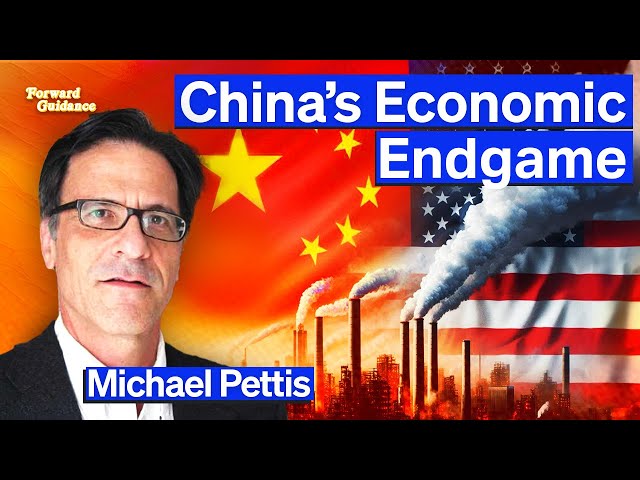Podcast Summary
This podcast features Brian McCarthy, CEO and founder of Macrolens, discussing the current state of China’s economy. McCarthy provides insights into China’s investment-led growth model, the country’s real estate bubble, and the role of the People’s Bank of China. He also discusses the potential impact of China’s economic slowdown on global markets.
Key Takeaways
China’s Unsustainable Growth Model
- Investment-led growth: McCarthy describes China’s investment-led growth model as unsustainable due to the problem of malinvestment and low-value added assets. He believes that the Chinese government has been rolling the losses of these investments by applying more credit, leading to a buildup of credit and lower quality investments.
- Geopolitical factors: McCarthy mentions the geopolitical factors, such as the Trump tariffs and the decoupling between the US and China, that influenced China’s decision to shift away from investment-led growth.
China’s Real Estate Bubble
- Massive misallocation: McCarthy highlights the massive misallocation of real resources in China, with tens of millions of empty apartments owned by households and developers. He predicts that China will not just experience a recession but a structural headwind, with the scale of the issue being two to three times larger than previous economic crises like Japan’s bust or the 2008 financial crisis.
- Government control: McCarthy explains that the Chinese government is heavily controlling the tech and property sectors, bringing them into the fold and closely monitoring their activities.
Role of the People’s Bank of China
- Accommodating lending volume: The People’s Bank of China (PBOC) does not have the same role as central banks in other countries. The PBOC’s main task is to accommodate the predetermined lending volume set by the National Development and Reform Commission (NDRC).
- Maintaining currency value: The PBOC also has the additional responsibility of maintaining the value of the Chinese currency, which can be challenging, especially when the US dollar is strong.
Impact of China’s Economic Slowdown
- Global effects: McCarthy explains that a Chinese economic slowdown would have direct effects on commodity-exporting nations like Australia and Brazil. He also mentions the potential broader ramifications for emerging markets if there is a Chinese recession or depression.
- Financial effects: McCarthy notes that the direct economic effects on the rest of the world, outside of commodity producers, are minimal, but there could be financial effects if there is a risk of a maxi devaluation.
Sentiment Analysis
- Bearish: McCarthy’s overall sentiment towards China’s economy is bearish. He believes that China’s investment-led growth model is unsustainable and predicts a significant economic slowdown. He also expresses skepticism about China’s ability to rekindle speculation and increase the number of apartments, as it would be openly acknowledging an unsustainable practice.
- Neutral: While McCarthy is bearish on China’s economy, he acknowledges that China may try to pivot to high-tech and homegrown technology. However, he believes there is not enough investment in these areas to make up for the real estate bubble bursting.












